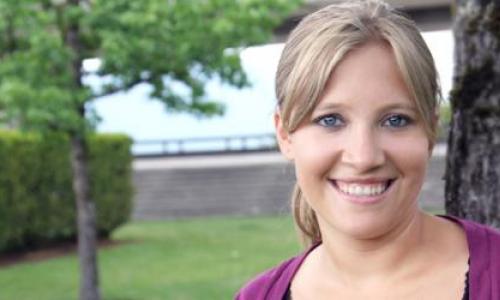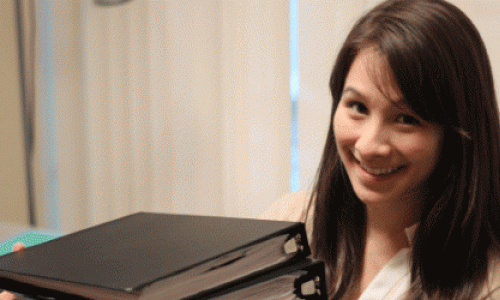
My first article as a Marketing Associate at LifeScan Canada focused on understanding the organization, my role, and learning the basics of hands-on marketing. Since then, I have been presented with many opportunities to gain new skills and develop my expertise. Most importantly, I have had the opportunity to learn and grow as a marketer.
Discovering Yourself
Learning is what makes you stronger, and opens up new opportunities. It’s not always easy though. There is always a cost attached to everything that is too good. In the last few months, I have had to cope with numerous timelines simultaneously and the stress that’s added to time sensitive projects. No matter how organized you are and how much you love processes, you cannot avoid this. But this is part of the learning – learning to manage your priorities, learning to manage stress, learning to understand the importance of timelines and most importantly learning to manage yourself. Before moving into a position, you should prepare yourself for these factors. That in itself will help you become more successful in the job. A lot of times, things don’t go according to plan and this happens quite frequently in my role.
Since I have to work with many different people to complete my own work, I have to be respectful of their time commitments as well. It took a few months to understand that I have to learn how to plan ahead. For example, this means checking the inventory management spreadsheet to foresee the materials that we’ll be running out of in the next four weeks and then planning ahead to refresh those materials or reprint them so they do not go on backorder. However, there are times when you cannot plan ahead. What do you do then? Prioritize your work accordingly and do your best to have everything done in time. This is where personality fit comes in. You really have to fit into that high-paced environment to be successful in the “corporate culture.”
It’s Time for Some Event Marketing!
Into my fourth month, I was informed that I would be leading a significant project on behalf of LifeScan Canada, known as the TELUS Walk to Cure Diabetes or the JDRF Walk. JDRF, otherwise known as the Juvenile Diabetes Research Foundation, is a leading world organization focusing on Type 1 diabetes research. Every year, they have hundreds of walks taking place globally and as I’m sure you know, such events require funding, which comes from sponsors. OneTouch, the LifeScan brand, happens to be the National Sponsor for this walk. It’s an event that attracts approximately 45,000 attendees in Canada. What role did I play in all this? Well, I had to build the OneTouch presence for the 25 major walks (along with 46 community walks). The goal was to build a consistent brand presence across Canada. When I was first told that I would be doing this, I thought, “Wow, what a great opportunity. I’ll be learning the how-to of event marketing.” What I ignored at that point was the amount of work this would require and the intricate details that are needed to make an event successful. I worked with a number of different designers, vendors and suppliers to create the booth signage with specific walk creative, product collateral, raffle draw materials, booth activities, decorations and much more.
Among all this, let’s not forget the amount of written and oral communication such a project requires. When you are spending large amounts of money, you need to justify your project to the internal stakeholders of the company. I had to make a presentation for the Board members so they would know exactly what our presence consisted of this year, then to the company to ask them to come out and support, and of course to the Marketing department to keep them up-to-date on the current activities. This project also required vast amounts of communication to the Walk Captains (our OneTouch Sales Reps) leading the OneTouch presence at each walk site across the country. Once all our materials were designed, approved, printed and on their way to each walk site, my manager and I set up a call with the Walk Captains to explain our Walk Plan and provide a handy guide for them. Presenting these intricate details helped us be consistent with our walk campaign in all locations.
This event was a pathway to build our brand awareness to our primary target audience. Engaging with the end consumer is absolutely vital for a company to be successful. This not only helps you learn about the consumer and user (market research) but it also builds your brand, helping the company stand apart from the competition as a leader.
Setting Expectations
This brings me to my next point about setting expectations – something that’s important and hard to do in large organizations. There are many people (internal and external) that I communicate with regularly. It’s important for me to exceed expectations with each person that I work with. Setting and exceeding those expectations can mean various things. One of these is being flexible with time and another is to fulfill responsibilities. In marketing, everything is time sensitive and “urgent”. There’s really no way around it!
Taking Control of your Mistakes
You always have to weigh the money and time costs with the value you’re receiving. If there are items that add no value but take up plenty of time, you should make a call and scrap them. All projects I worked on required a chunk of time and commitment. The JDRF campaign, in particular, took two months to create, execute and produce. At the beginning I was overwhelmed, always worried about accidentally making a mistake or missing something. One small mistake can cause a large impact. But in the end, that’s what helped me look at all the details that were part of each task. And as much as I wanted to avoid any big mistakes, I did make one.
During that period, I felt awful about the error. But mistakes are mistakes. I realized that it wasn’t time to sulk but to act on the problem. I discussed this with my manager and we built a plan to rectify the error. In the end, everything did work out; it requires courage to admit mistakes and a lot more to try and resolve them. With co-op, everyone around you recognizes that you’re at a learning stage and they are willing to help you understand how to do your job better.
If it wasn’t for my manager and her guidance, I wouldn’t have received half the learning that I did. Over the last few months, I started asking more strategic questions so I knew exactly what I am doing, what the purpose of the project is, and how it will create an impact. For those who graduate and never get the chance to work in different areas and understand how small and big companies work, their learning curve is steeper and the space they have to make mistakes is very small.
To Conclude…
I am excited to see what lies ahead of me. It’s been an amazing journey full of learning, accomplishments and challenges. Challenges are part of everything – if you’re not being challenged, you’re not learning. And accomplishments? Well honestly, if I hadn’t received the chance to lead the JDRF Walk, my bucket of experiences would not be as filled as it is now. When I attended the Walk for myself in Vancouver, I felt that I was actually responsible for making a difference. That was the feeling of accomplishment that made everything worthwhile. Accomplishments and successes are rare and they don’t come without the failures. When they do happen, however, it’s an amazing feeling. At that time, you feel proud – proud of yourself, proud of your efforts and proud of overcoming all those challenges.
If you haven't yet, read about the steep learning curve of starting a co-op in part one.













